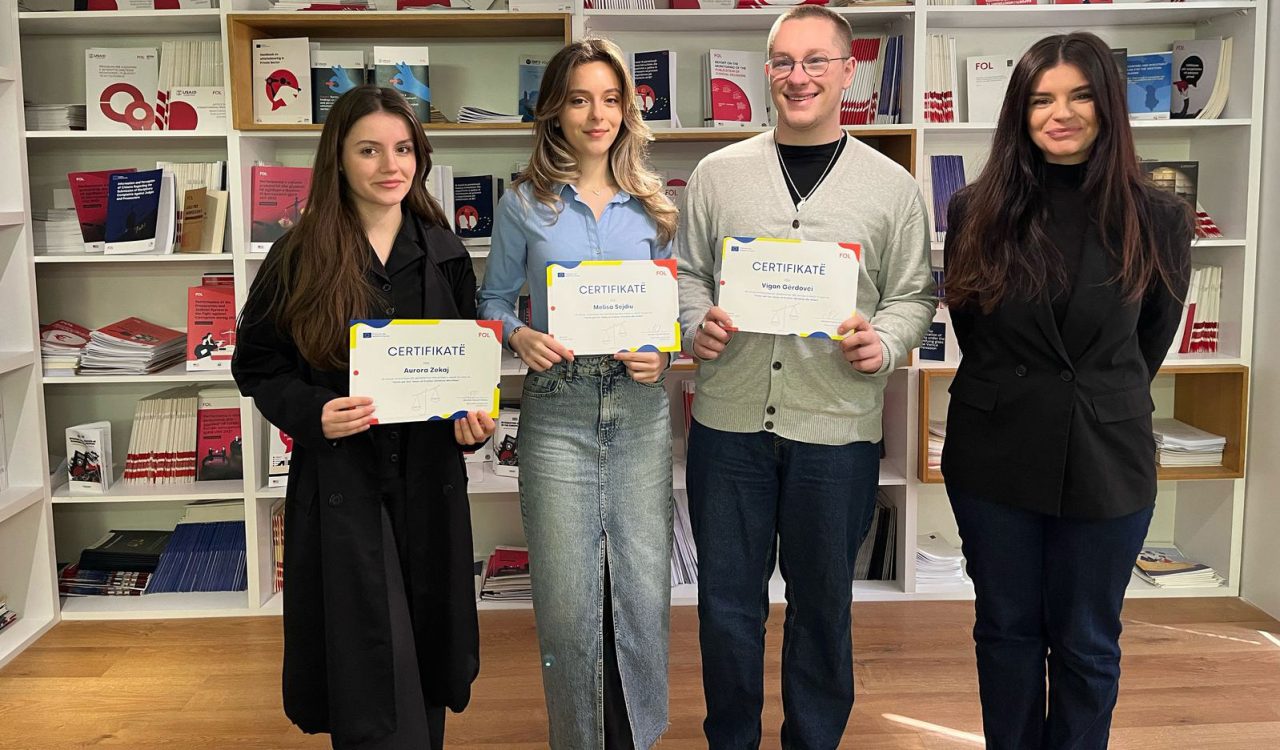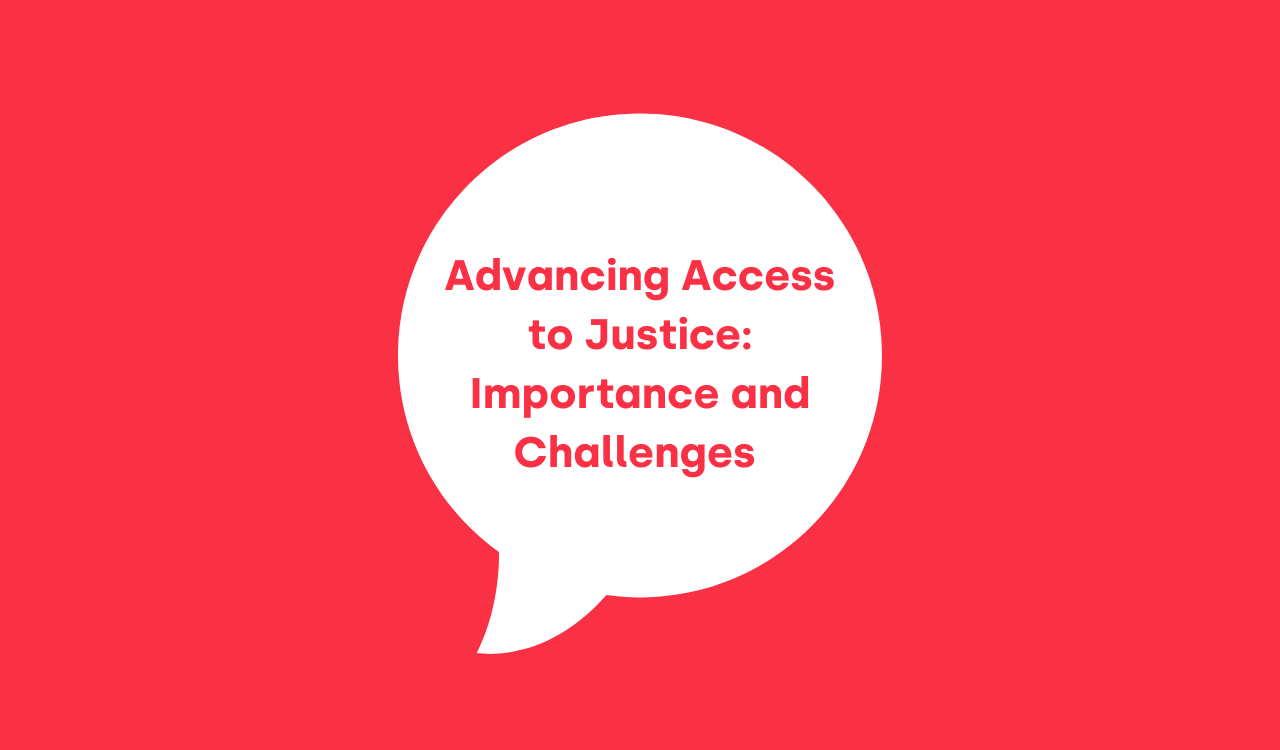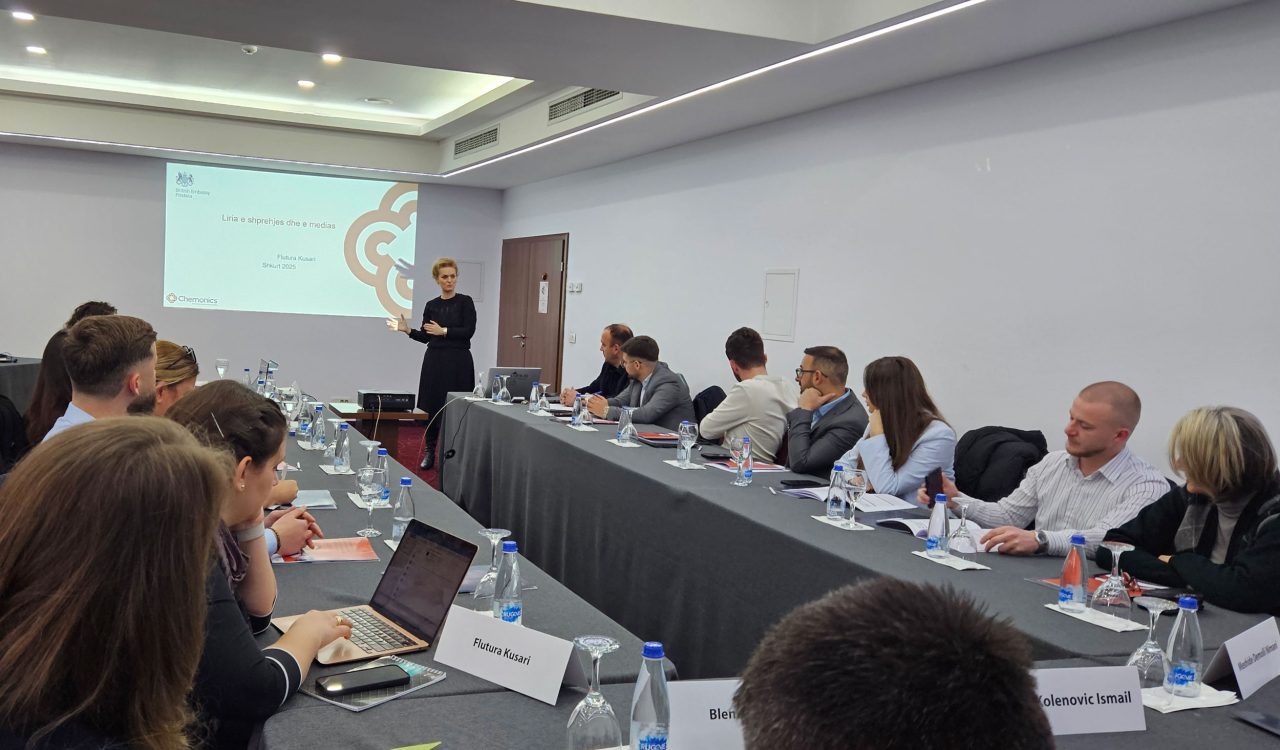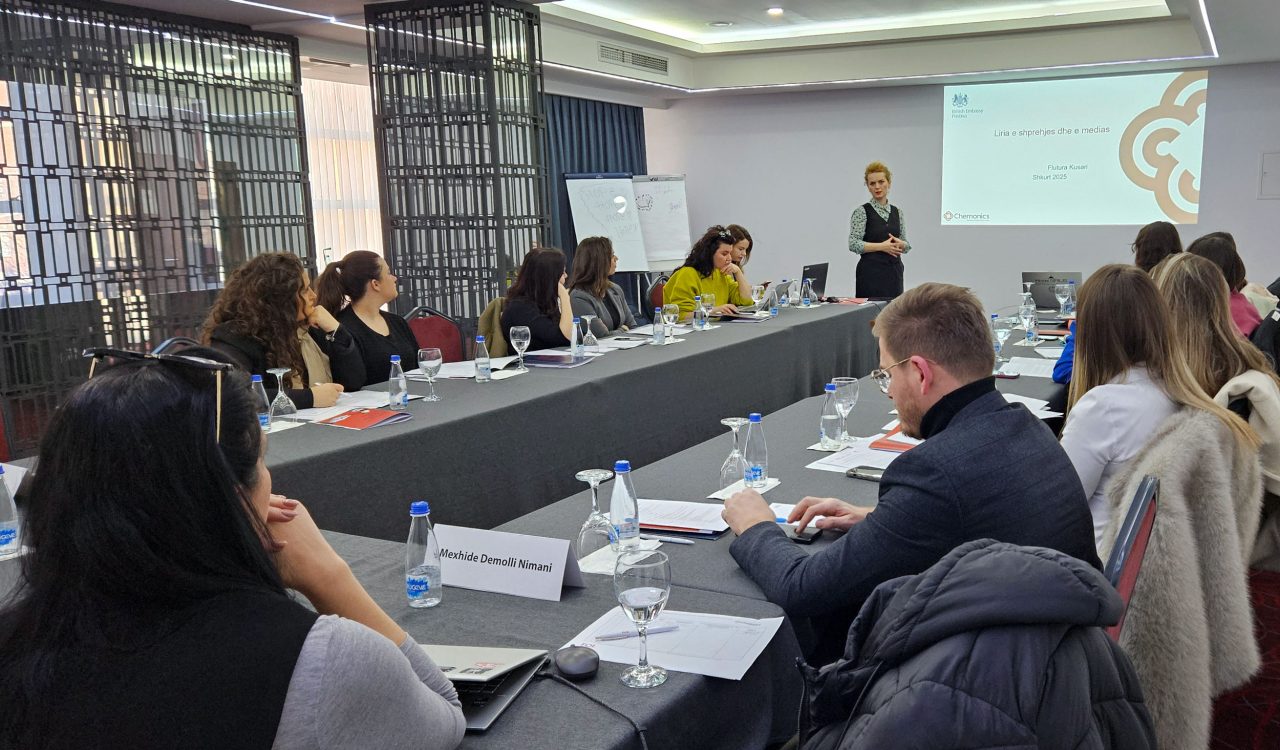Author: admin
Monitoring Report on the Implementation of the Local Action Plan for Gender Equality in the Municipality of Hani i Elezit (2024-2026)
Monitoring Report on the Implementation of the Local Action Plan for Gender Equality in the Municipality of Dragash (2024-2026)
Monitoring Report on the Implementation of the Local Action Plan for Gender Equality in the Municipality of Prizren (2024-2026)
Report from media monitoring during the election campaign – General Elections for the Assembly of Kosova (9 February 2025)
Director of the Dole Institute Politics Visits Lëvizja FOL
Pristina, June 30, 2025 – Audrey Coleman, Director of the Dole Institute of Politics at the University of Kansas, visited FOL today.
Ms. Coleman was welcomed by the Executive Director Mexhide Demolli Nimani, who provided an overview of FOL’s work and mission.
The meeting served as an opportunity to explore possibilities for cooperation in areas of mutual interest, particularly in strengthening democratic values. This visit reflects the continuation of Senator Bob Dole’s legacy in preserving and advancing relations with Kosovo.
Monitoring Report on the Kosovo Judicial Council and the Kosovo Prosecutorial Council (January-December 2024)
The Application of ECtHR Jurisprudence in Kosovo
Summary of cases from the jurisprudence of the European Court for Human Rights (ECtHR)
Handling of Corruption Cases in the Last Decade in Kosovo: The Impact of Legislative Changes
Kosovo’s Public Administration Reforms: Challenges, Progress, and the Road Ahead
2024
Booklet on Strategic Lawsuits Against Public Participation (SLAPP Lawsuits)
Guideline to Strategic Lawsuits Against Public Participation (SLAPP Lawsuits)
FOL has awarded the essay competition prizes
The FOL Movement, as part of the “Access to Justice Campaign,” has awarded prizes for the essay competition on the importance and challenges of access to justice.
This competition was organized for all bachelor’s and master’s level students and aimed to encourage the discussion and analysis of key issues related to justice.
The winners of the competition are:
🏆 Vigan Gerdovci – First Place
🥈 Melisa Sejdiu – Second Place
🥉 Aurora Zekaj – Third Place
This competition is part of the project “Raising Awareness and Trust of Citizens in the Justice System Institutions,” in partnership with the Center for Advanced Studies FIT, supported by the European Union in Kosovo.
The FOL Movement thanks all participants and encourages them to join future calls!
Advancing Access to Justice: Importance and Challenges – Vigan Gërdovci
This essay was written as part of the competition ”Access to Justice: Importance and Challenges”, within “Raising Citizens’ Awareness and Trust in Justice System Institutions” project, in partnership with the Center for Advanced Studies – FIT, supported by the European Union Office in Kosovo.
By: Vigan Gërdovci
Undoubtedly, Kosovo’s nascent democracy must confront a weighty, fundamental issue—the accessibility of justice for all citizens—that threatens to stall our societal progress. As a fourth-year law student, I can testify to the untold number of hours and the sheer dogged determination that many of our legal profession must expend if they are to overcome our narrow prevailing realities in order to live up to the “not always pretty” promise of equal justice under the law. Indeed, the forces impeding the accessibility of justice in our society are far from unique to Kosovo; around the world, many justice systems seem almost cursed to not fulfill their very essence. But some of us are working on plans to change that, and this essay is one of those plans.
Three main obstacles keep citizens of Kosovo from using the justice system. The first is money. In a country where over 60% live below the average income level, the costs associated with obtaining legal representation and the necessities for pursuing a court case are a serious barrier. And, as we will see later, the median income itself is artificially inflated and does not represent a large number of people whose means fall well below even the already meager average. In this environment, where people struggle to make ends meet, the promise of a legal system that is accessible to all is in serious jeopardy.
The problem is worsened by the complex nature of legal processes and the impenetrable legal language that professionals use. This language often serves no other purpose than to enhance the professionals’ status, yet it serves to further alienate citizens who are supposed to be served by the system. All of this would be bad enough, but it is made even worse by the low levels of legal literacy among our citizens. Most people do not know what rights they have, and as a recent study pointed out, they also do not know what free resources are available to help them. The same study found that most people overestimate the cost of obtaining help. This gap in awareness not only harms the individuals involved but also sends a “justice is not for all” message to the public.
Achieving the goal of narrowing this gap demands multifaceted action. Some of it must reform the old structures, but some of it must also be envisioned and imagined to be something different than what we presently have. We have to have something new; we cannot rely solely on the old structures to get to something that’s truly just. The big push in the next few years must be to enlarge and strengthen the access-to-justice system that is free and primarily available to the poor.
At the heart of the college experience is the empowerment of individuals to traverse a baffling legal system. The law and authority can and do change—often in ways that might not be apparent until they’re upon us. Teaching people how to navigate these changes doesn’t just keep them on the right side of the law. It gives them the knowledge to recognize when the law is on their side or when it’s not and then to do something about it.
Additionally, in the pursuit of genuine justice within Kosovo, reforming existing laws is not enough; we must also alter our mindset about the very concept of law and what it signifies for society. As we prepare to enter the legal profession, we must seriously consider the nature of our work both on behalf of our clients and on behalf of the untold numbers who cannot and do not enlist our services. The nature of our work within the legal system is intimately tied to our understanding of the type of system in which we wish to live. The legal system’s existence is premised on the fair and transparent functioning of its parts.
This vision demands that we become both reformers and visionaries. It calls on us to use our academic privilege to push for systemic changes that promote fairness and accessibility within the legal framework. There are doubtless many ways to accomplish this. I’m just sharing one of them, which happens to be my pet project and one that I think is a pretty good exemplar of what I’m talking about when I use the words “fair” and “accessible.”
To sum up, ensuring that all Kosovo citizens can attain justice is not just about law; it’s mostly about the kind of society we want to live in. Currently, we are tackling significant shortcomings, with innovative reforms as our main method. These reforms are threefold. First, we are expanding the availability of free legal aid to those who need it. Second, we are improving the public legal education that we give to our society, to ensure that everyone knows what their rights and obligations are under the law. And, finally, we are simplifying legal procedures to reduce the number of false barriers that are put up.
At the threshold of this transformative journey, let us devote ourselves to constructing a future where justice is not merely an aspiration, but a reality experienced by every Kosovo citizen.
Advancing Access to Justice: Importance and Challenges – Melisa Sejdiu
This essay was written as part of the competition ”Access to Justice: Importance and Challenges”, within “Raising Citizens’ Awareness and Trust in Justice System Institutions” project, in partnership with the Center for Advanced Studies – FIT, supported by the European Union Office in Kosovo.
By: Melisa Sejdiu
“Justice delayed is justice denied,” a phrase attributed to William E. Gladstone, states an obvious truth: the absence of access to justice puts the very core of humanity at risk. However, for millions of people worldwide, legal systems continue to be a maze of territorial, social, and economic, obstacles that make real justice nothing more than an unachievable dream. Although legal systems are intended to protect human rights, resolve disputes and ensure fairness, they often come with a lot of problems. These problems create a legal barrier between the people and their access to justice. However, its importance cannot be overstated. Access to justice plays a crucial role in establishing the rule of law, because it puts the theory of fundamental human rights into practice.
The obstacles people face when accessing justice are numerous, but they can be categorized into three main groups: legal barriers, geographic barriers, and social and economic barriers. Legal barriers encompass a wide range of issues, including a lack of legal literacy, which is crucial for access to justice. As noted by the Council of Europe (2019), while legal literacy is recognized as an essential element of access to justice, there is insufficient data on how well individuals are aware of their rights and the mechanisms for protecting them. The complex processes along with the specialized terminology and technical rules tend to be difficult to nagivate for the average person. In addition to the complexity of legal processes, geographic barriers present another important challenge. For individuals living in remote or rural areas, access to justice and legal resources is often limited or unavailable. Depending on their access to transportation and whether they reside in an urban or rural region, people are affected by court distance and journey time in different ways. Due to their restricted mobility, fewer options for transportation, and financial limitations, women are frequently faced with more difficulties. The lack of childcare facilities in the area also makes it more difficult for women to pursue justice. Access to specialized courts, such as those that handle cases involving domestic or family abuse, is made even more challenging for people living in rural areas because these courts are usually found in urban areas.
While geographic barriers create challenges to accessing justice, they are often mulitplied by broader social and economic challenges. Financial limitations make it more difficult for many people, especially those from poor or marginalized groups, to access legal resources, which promotes an endless cycle in which access to justice is restricted by both geographic and economic disadvantages. According to the International Bar Association (2015), poverty contributes to and is a consequence of justice system failures. Low-income and marginalized groups are disproportionately affected by inadequate funding and insufficient resources in justice systems because they frequently lack the financial means to overcome these structural problems. Denying people in poverty equal access to justice makes it harder for them to exercise their economic and social rights, including their rights to property and labor, making them more prone to exploitation. In addition, issues like discrimination, minimal literacy and restricted access to information have a connection to poverty, making it even more difficult for vulnerable individuals to access justice fairly. In conclusion, it is certain that people encounter numerous challenges when trying to access justice. There is reason for hope, however, as current reforms and future changes can reduce these barriers and eventually enable individuals to more effectively exercise their rights.
Reforms have been introduced to address these challenges. Transparency in judicial proceedings plays a crucial role in public trust and accountability in the legal system aswell. Finland, for example, implemented the Act on the Publicity of Court Proceedings in 2007, which ensures that court proceedings and trial documents are open to the public, except in certain circumstances. This law includes provisions for protecting sensitive information, such as issues concerning personal health or security, while still promoting openness. Similarly, international projects like the EUKOJUST initiative in Kosovo focus on enhancing transparency and harmonizing legal frameworks. Technology is also playing a huge role in making justice more accessible. Online Dispute Resolution (ODR) is an example of how digital platforms enable people in remote or poor areas to resolve legal disputes without going to court. This method reduces costs and simplifies the process, benefiting marginalized communities. Furthermore, legal education and public awareness are key to overcoming these barriers. By informing individuals of their rights, public legal education programs help people engage with the legal system and defend their rights effectively.
In summary, even though many people still consider access to justice to be an unrealistic goal, its significance in protecting equality and fairness cannot be denied. Legal, geographical, and financial barriers are significant yet manageable. A more inclusive court system where everyone can exercise their rights is possible in the future due to ongoing improvements in legal education, technology, and transparency.
Advancing Access to Justice: Importance and Challenges – Aurora Zekaj
This essay was written as part of the competition ”Access to Justice: Importance and Challenges”, within “Raising Citizens’ Awareness and Trust in Justice System Institutions” project, in partnership with the Center for Advanced Studies – FIT, supported by the European Union Office in Kosovo.
By: Aurora Zekaj
Justice is more than just an idea in law books. It’s the heartbeat of a society that wants to treat everyone with respect and fairness. Imagine a world where every person, no matter their background, language, or wealth, feels that their voice matters. For some, this may seem like an impossible dream, but for Kosovo, it’s a goal worth striving for.
Forming a society means much more than the adoption of legislation; rather, it means that regardless of one’s situation in life, one should be able to access fairness when needed. A transparent and efficient judiciary is the basis for building trust in the people. But what happens when people lose that trust? What happens when a person dealing with an injustice doesn’t know where to turn, or, worse still, does know but cannot afford the path to seek justice due to financial or geographical obstacles?
In Kosovo, the struggle to access justice is an everyday reality for many. Take, for example, a single mother in a rural village who strives to raise her children, protect her home, and keep her family safe. To her, justice isn’t some abstract ideal; it’s about securing a future for her children. She wants to be able to protect her rights, but the system is against her.
She has the difficult task of going through a judicial system that is already overloaded with cases. The courts are full, with some cases from years ago, and the process can take months or even years. The cost of hiring a lawyer is often too high for her, and even when help is available, the process is so complicated and frightening that she may give up before she even starts. To make things worse, many people, like the single mother in this case, don’t know where to turn for help or are stopped by language and location problems.
It captures a broader issue: access to justice isn’t solely about understanding the law, but rather it’s giving the person tools and resources to navigate around a system that seems built to keep them out.
Even with many challenges, there is some hope. In recent years, some of the barriers preventing people from getting justice have been removed. Legal aid programs were initiated, enabling those in need to obtain legal advice and representation regardless of their ability to pay. Such initiatives can be a savior for those who would otherwise not afford an attorney.
Creativity is one of the major steps to justice for all. Just working within the traditional system isn’t enough. We have to think outside the box for different solutions that will make justice more accessible.
What if mobile legal-aid centers were created to go into rural areas to make legal aid available to those who cannot get to a courtroom? This would be a simple way to bridge the gap for those living in remote areas. Or, what if there were mobile apps designed to give citizens easy-to-understand legal advice in their own languages? Such tools could empower people to understand their rights and help them navigate the legal system with confidence.
Personal stories also have the power to inspire change. Often, when people are exposed to others’ struggles, above all when stories include an effort to overcome barriers toward access to justice, it motivates them to act. A young person sharing how free legal aid changed their life, or a mother describing her battle for her rights and, indeed, victory over them, spurs hope in others while pushing the system to improve itself. These stories show that justice isn’t just a set of rules—it’s a living, breathing thing that can transform lives.
Achieving a just and accessible justice system is not an easy task, but neither is it impossible. To achieve this, Kosovo has to focus on more than just legal reforms; it needs a cultural shift in which justice would be perceived as a basic human right, rather than a privilege for the few.
The vision for Kosovo would have the justice system serving all, not just those with resources or influence. It is a vision of a future where each person can be confident that their voice will be heard and their rights considered. Kosovo has an opportunity, unique in all the world, to lead the way in demonstrating even the tiniest of nations can make justice available for all.
In that respect, access to justice is not only a legal issue but the very commitment of society. That goes to say, a system is created in which no person would be left behind. Not only will legal access become available, but people themselves can be trained and taught to avail those means. Kosovo, in that fair sense, stands out to demonstrate what can be done when a given society values equity and justice above everything else.
Long as the road ahead may be, it is not devoid of hope. Every step toward access to justice means a step toward a more equitable society. For this journey to succeed, all of us-citizens, policymakers, and organizations-need to come together to make justice a reality for all.
What we really need to start making progress with is the development of partnerships between the public sector, private institutions, and civil society. This requires investment in education-not only in lawyers and judges but also in average citizens-so they would understand their rights and how to protect those rights. Equally important will be the continued utilization of technology to make this process as simplified as possible and accessible in a transparent manner so that people can gain assistance more easily. The dream of a just society is not out of reach. Kosovo has the opportunity to lead by example, showing that no matter the size of a country, a simple but strong commitment to justice and fairness can truly transform lives. By working together, we can build a future where every person, regardless of their background, language,
Training with representatives of civil society organizations and lawyers: European standards for combating SLAPP lawsuits
Prishtina, February 19, 2025 – The FOL Movement, contracted by the SLAPP Pilot Project in Kosovo—funded by the British Embassy in Pristina and implemented by Chemonics UK—in cooperation with AGK, is organizing a training session for representatives of civil society organizations and lawyers on “European Standards for Combating SLAPP Lawsuits.”
During the training, participants will gain insights into the latest European standards for addressing SLAPP (Strategic Lawsuits Against Public Participation) cases. The session will cover methods for identifying SLAPP lawsuits, which are often used as tools to intimidate and silence activists and journalists. Special emphasis will be placed on the impact of such lawsuits on women, people with disabilities, and other vulnerable groups, who are frequently targeted due to their public engagement and activism.
Training for Journalists: European Standards for Combating SLAPP Lawsuits
Prishtina, February 18, 2025 – The FOL Movement, contracted by the SLAPP Pilot Project in Kosovo—funded by the British Embassy in Pristina and implemented by Chemonics UK—in cooperation with AGK, is organizing a training session for journalists on “European Standards for Combating SLAPP Lawsuits.”
During the training, participants will gain insight into the latest standards for combating SLAPP (Strategic Lawsuits Against Public Participation) cases. The session will cover methods for identifying SLAPP lawsuits, which are often used as tools to intimidate and harass activists and journalists. Special emphasis will be placed on the impact of such lawsuits on women, people with disabilities, and other vulnerable groups, who are frequently targeted due to their public engagement and activism.




